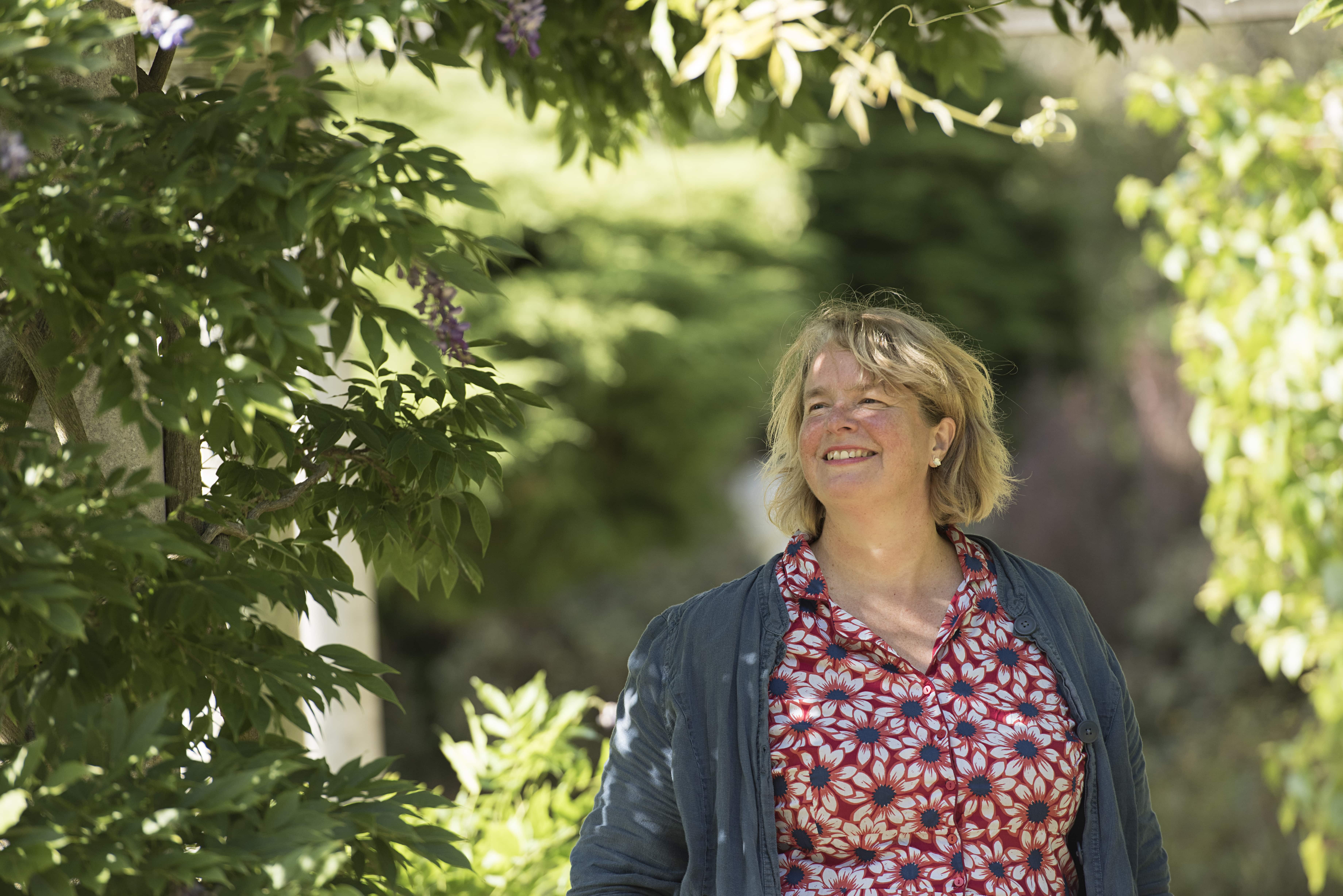Following the widely publicised attack on nature campaign, RSPB CEO Beccy Speight sat down with Melissa Moody to discuss leadership, her move from management consultancy into charity work, and the power of emotion.
________________________________________________________________
As a household name, the Royal Society of the Protection of Birds (RSPB) commands a certain type of reputation and respect, and the expectations that go along with it. But that can also mean charities of RSPB’s size can afford to take certain risks, so-called ‘controversial’ takes that stir up public opinion.
At the helm is Beccy Speight, the organisation’s CEO. She didn’t start out in the charity sector, in fact, she studied English Literature at university. From there, she taught English as a foreign language in Spain before moving to Edinburgh and working in local government.
Speight got an MBA and moved down to London to work in management consultancy. “I was very much an outdoorsy, nature type child… increasing shareholder value, which is basically what you’re doing as a management consultant, but it wasn’t what really floats my boat,” Speight explains. “I wanted to do something where I thought I was making a difference to things that I really care about.”
This was in the 90s, and Speight’s organisation allowed her to take three months off at full pay after five years’ work. She travelled, but she also called the estate manager at a local National Trust estate and spent two weeks shadowing and finding out more about the organisation and the role. That led to her getting a job as a land manager, partly because they were specifically looking for someone without a land management background.
“I was lucky enough to get that, and it was a massive salary drop and all of that stuff but I was in a place where I could do it. I was single, I didn’t have kids. And that’s what got me into the sector really.” From there, Speight has been on an upward trajectory in the conservation sector including roles at the National Trust and the Woodland trust before moving to the RSPB. “[It’s where] I think the really big fight is, and where I think I can make the most difference.”
Of course making a difference isn’t without its own challenges. Speight is glad the climate crisis is being recognised, but the biodiversity crisis “which is equally bad and equally important, is less recognised”. It is the next challenge for the RSPB, she adds, along with fixing farming. “We’ve got to be able to produce food alongside nature and getting that right is really important because it can affect so much of our land.”
Also creating challenges for the RSPB, among other charities, is the current political environment. “We’ve got a really volatile political environment at the moment, both globally and in the UK. And that always makes conservation work harder… what you’re trying to do is influence and it’s very difficult to influence things when there’s a heck of a lot of other noise in that environment.”
Attack on nature
But it’s not all doom and gloom, Speight emphasises. “I think one of the challenging things about working in the environmental sector is that you can just think it’s all going to hell in a handcart…. And I don’t think that’s true.”
Along with its scientific work, she’s proud of the organisation’s campaigns, including it’s recent Big Garden Birdwatch. “Making sure everyone feels that they can join in with something that’s about the natural world… it’s a real victory because it can feel like a really complicated thing.”
The organisation has certainly had an influence, particularly with its Attack on Nature campaign, held in response to the former Prime Minister’s and Kwasi Kwarteng’s mini budget.
“We just felt we had to stand up to nature,” Speight states. If the proposals came to pass, she adds, then it could have set progress back decades in restoring the environment. The response from environmental and conservation charities was anger, and this was plainly expressed in perhaps a way that hadn’t been done before. The initial tweets captured the emotion of the moment… and ignited something in the public.” Like all great campaigns, she explains, some of it was intentional and some of it was organic. “And those things came together to light a spark.”
Some of the proposals went away when the former chancellor took a u-turn, and some are on their way through parliament, but the charity is still working on proposing amendments. “We won some, we didn’t win some, the fight goes on but I think it definitely made a difference.”
When watching the events unfold in real time, it was evident just how much the sector and, public got behind the charities involved. Some questioned the bold campaign, sparking a debate on how political charities are able to be. “We were very clear, we read all the Charity Commission guidance, we kept our trustees completely briefed… we were completely within our rights to do it.
“But I think what I really learned from it is the power of emotion… and I think if you can connect with people then suddenly you’ve got something that’s rolling.”
And perhaps some of the reason that campaign worked so well is because of the reputation the charity has. “We’re always measuring how we’re doing and one of the areas that we score really well in is trust. “It’s really important that people trust our voice and that is easily squandered.”
But Speight loves the role, it’s easy to see when talking with her. The variety of the role, she says, is her favourite part. “I love the fact that I’m talking to a government minister one minute or talking to someone like you or visiting a reserve the next. I love that mix of stuff.”
The energy too spurs her on, and she recognises she’s privileged to be in a position where she feels fulfilled. “I always feel like I’ve got membership breathing down my neck, going ‘I’ve given you my 60 quid, what are you doing with it?’ I think there’s a huge energy that comes from that and from being a voluntary organisation. You can meet volunteers who are totally inspiring and I get a lot of energy from the staff base as well. That sense of being part of a wave of change I find really enjoyable.”
Authentic leadership
Working in the sector for a number of years, Speight has been able to see change. She’s noticed more women leading organisations “and I don’t think that’s either good or bad, but it’s different. And I think no one can argue whether these things are related or not but I think there’s more collaboration in the sector.” She believes that for a number of years, charities have collaborated well on things like policy and influencing, but less well on campaigns. “But Attack on Nature shows we can do that and do it effectively.”
A more authentic style of leadership is also on the rise. “I’m not a very corporate leader; I’ve struggled to look smart,” but there’s more acceptance now, she believes. As a result of this style of leadership, she likes to see other people shine. When Speight leaves an organisation, she likes to feel as though there’s a raft of other great people who have risen to success whilst in that leadership position.
“It’s really important as part of your role as leader to be moving that organisation in a better place than you found it in terms of its ability to carry on.” And the personal advice she has been given has been valuable, too. She once had a boss who said ‘don’t look down’. “There are going to be times when you’re going to feel like you’re out on a tight rope. You’re leaning towards something and you don’t know if it’s going to be successful and you don’t know if you’ve got everything in place to make it work… but don’t look down. Just keep going and keep your eye on the prize.”
A lot of charities will need to look ahead in the coming months. It’s easy to be caught in the day-to-day struggles the cost-of-living crisis bringing and the short-termism that has plagued much of the sector in recent years, but they can be part of the wave of change Speight loves so much.
Being part of that wave of change can be challenging in the current economy. The RSPB isn’t immune from the cost-of-living crisis, although Speight admits that they’re not seeing as big of an impact as other charities might be, in part due to significant membership numbers.
“Do I feel worried about it? I definitely feel concerned and I think we’ll have to adjust our trajectory a bit. I don’t see the costs coming down any time soon.
“I really hope the sector as a whole isn’t going to get decimated by this,” she adds. “We came through Covid-19, and although we lost some charities, a lot clung on and did manage to navigate their way through. I almost feel like this is a harder situation.”
And despite the RSPB’s size (an income of roughly £160m, according to the Charity Commission), Speight speaks words leaders of all organisations can resonate with: ‘think on and remember in months to come’: “The big challenges are absolutely still out there, but are we making a difference? Yes we are.”
Latest News
-
Charity to close after 40 years due to ‘harsh realities of funding challenges’
-
‘Financial strain’ forces monkey sanctuary charity to close to the public this year
-
Refugee charities coalition names next chair
-
Pregnant Then Screwed appoints new CEO
-
Knowledge gaps impacting legacy fundraising, research shows
-
Design agency launches pro bono scheme for charities
Charity Times video Q&A: In conversation with Hilda Hayo, CEO of Dementia UK
Charity Times editor, Lauren Weymouth, is joined by Dementia UK CEO, Hilda Hayo to discuss why the charity receives such high workplace satisfaction results, what a positive working culture looks like and the importance of lived experience among staff. The pair talk about challenges facing the charity, the impact felt by the pandemic and how it's striving to overcome obstacles and continue to be a highly impactful organisation for anybody affected by dementia.
Charity Times Awards 2023
Mitigating risk and reducing claims

The cost-of-living crisis is impacting charities in a number of ways, including the risks they take. Endsleigh Insurance’s* senior risk management consultant Scott Crichton joins Charity Times to discuss the ramifications of prioritising certain types of risk over others, the financial implications risk can have if not managed properly, and tips for charities to help manage those risks.
* Coming soon… Howden, the new name for Endsleigh.
* Coming soon… Howden, the new name for Endsleigh.
Better Society

© 2021 Perspective Publishing Privacy & Cookies











Recent Stories